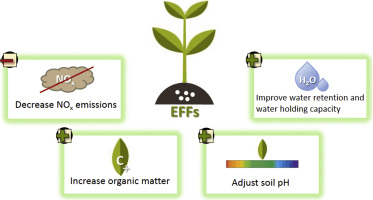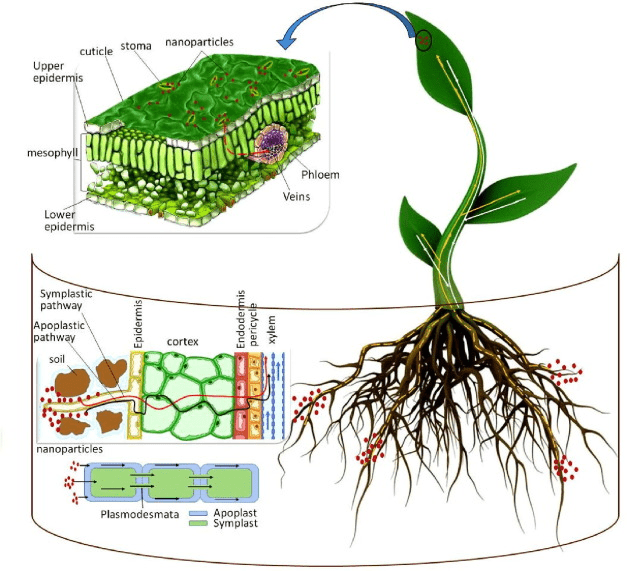One pivotal aspect of in the quest for sustainability in agriculture is the adoption of sustainable fertilizers, which is a revolutionary approach to nutrient management that ensures bountiful harvests without compromising the delicate balance of our ecosystems.
In the ever-evolving landscape of modern agriculture, the quest for sustainability has become a paramount concern. As stewards of the land, farmers are increasingly turning to sustainable practices to nourish their crops while minimizing environmental impact.
As agriculture stands at the crossroads of environmental sustainability and food security, the integration of sustainable fertilizers emerges as a beacon of hope.
Through embracing these innovative approaches, farmers become not just producers but stewards of the land, cultivating a greener tomorrow for generations to come.
The shift towards sustainable fertilizers is a transformative journey, one that harmonizes the needs of the present with the imperatives of the future.
The Need for Sustainable Fertilizers

The conventional fertilizers have long been the workhorses of agriculture due to its support in boosting crop yields but which often happens at the cost of soil degradation, water pollution, and greenhouse gas emissions.
The need for the use of sustainable fertilizers emerge as a crucial solution as a measure towards addressing these environmental challenges while meeting the nutritional demands of crops.
The use of sustainable fertilizers such as organic fertilizers, cover crops, biofertilizers, precision management among others provides the solution to the challenges caused by the use of conventional fertilizers.
A Call to Action
1. Global Food Security: As the global population burgeons, the demand for food production intensifies. Sustainable fertilizers provide a pathway to meet this demand without compromising the integrity of the environment. This dual commitment to food security and ecological sustainability is crucial for a balanced and secure future.
2. Empowering Farmers as Stewards: Sustainable fertilizers empower farmers to become stewards of the land, cultivating not only crops but also a resilient and regenerative agricultural landscape.
This shift reflects a broader acknowledgment of the interconnectedness between human activities, agricultural practices, and the health of the planet.
In essence, the need for sustainable fertilizers is a clarion call to redefine our approach to agriculture, a call that resonates with ecological responsibility, economic prudence, and a profound commitment to nourishing both the land and its people.
As we stand at the intersection of innovation and tradition, the adoption of sustainable fertilizers emerges as a transformative step towards a more sustainable and flourishing agricultural paradigm.
Farmers are therefore encouraged to leverage the benefits of making use of sustainable fertilizers in maintaining the nutritional demands of crops in order to reduce some of the environmental challenges which are often caused by the conventional fertilizers.
Read Also: How to Make your Own Fertilizer
Types of Sustainable Fertilizers

Here are the different types of sustainable fertilizers to be used in maintaining the nutritional demands of crops thereby reducing some of the environmental challenges that results from the regular use of the conventional fertilizers for crops fertilization;
1. Organic Fertilizers: These are the type of fertilizers that are derived from natural sources such as compost, manure, and organic matter, these fertilizers enhance soil fertility without introducing harmful chemicals.
The organic fertilizers does not only supply the essential nutrients but they also help to improve soil structure and water retention.
2. Cover Crops: These are the living, green carpet covering the soil between main crops, and they can act as natural fertilizers to enhance soil fertility without introducing harmful chemicals into the soil.
Cover crop legumes, like clover and peas, helps in fixing the nitrogen from the air into the soil, promoting fertility and reducing the need for synthetic nitrogen fertilizers.
3. Biofertilizers: The use of biofertilizers includes the process of harnessing the power of beneficial microorganisms to enhance the nutrient availability in the soil.
Some beneficial microorganisms like the nitrogen-fixing bacteria, mycorrhizal fungi, and other microbial communities form partnerships with plants, fostering nutrient absorption and overall plant health.
4. Precision Nutrient Management: This involves leveraging advanced technologies to improve soil fertility. Precision nutrient management tailors fertilizer application to the specific needs of crops.
Soil testing and data-driven approaches optimize the nutrient levels which helps in reducing excess application and minimizing the negative environmental impact.
Read Also: How to Fertilize Your Plants
Benefits of Sustainable Fertilizers
Here are some of the main benefits of using sustainable fertilizers for crops fertilization;
1. Environmental Conservation: Sustainable fertilizers aids environmental conservation by minimizing the use of synthetic chemicals and promoting healthier soil ecosystems, sustainable fertilizers contribute to the conservation of biodiversity and protect water resources from pollution.
2. Climate Resilience: The adoption of sustainable fertilizers aligns with climate-smart agriculture, thereby mitigating the greenhouse gas emissions associated with traditional fertilizer production and application.
3. Long-Term Soil Health: Sustainable fertilizers supports long-term soil health since unlike the conventional fertilizers that may degrade the soil quality over time, sustainable fertilizers helps to improve soil structure, enhance microbial activity, and foster a resilient and productive growing medium.
4. Economic Viability: While initial investments in sustainable practices may seem higher, the long-term benefits include reduced input costs, improved crop resilience, and increased market demand for sustainably produced goods.
Read Also: Feeding the World: The Importance of Sustainable Crop Farming

Interesting read and a very important topic in the world of sustainable agriculture. Unless we adopt sustainable solutions to everyday agricultural practices we will continue to see the health of our soils deteriorate as the demand for food grows.
Great. Thank you so much and we are glad that you find our article very helpful